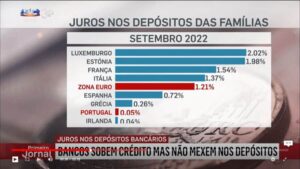Looking for lower interest rates
GBP: Mixed data, cheaper houses
It was a slow week for the pound. Economic data were few and far between and the Brexit rhetoric was muted by the Parliamentary recess, though still mostly unhelpful. Sterling made ground against the Commonwealth dollars and lost out to the euro, the safe-haven yen and Swiss franc.
The purchasing managers’ index readings for construction and services delivered the usual contradiction. At 45.3 in July, construction was closer to breakeven than the previous month’s 43.1, but still uncomfortably far into the shrinkage zone. By contrast, services came in at 51.4, more than a point higher on the month and above forecast. The BRC’s survey of like-for-like retail sales in July found them 0.1% above the same month last year, i.e. almost flat. The Halifax and the Royal Institute of Chartered Surveyors reported falling prices for UK residential property.
EUR: Italian election looms
Some of the European economic data were quite good, even those from Germany. German factory orders jumped 2.5% in June, more than making up for the previous month’s 2.0% decline and smashing analysts’ forecast of a 0.5% increase. Industrial production was less impressive though, dropping 1.5%. The purchasing managers’ index readings from Germany followed a familiar pattern, with manufacturing at the bottom of the EU pile and services at the top on 54.5. The most encouraging pan-Euroland figure was retail sales, which jumped 1.1% in June. Investors were sufficiently unworried by the data to make the euro one of the top performers. It added more than one US cent and strengthened by seven eighths of a cent against sterling.
The breaking news at the end of the week came from Italy. Deputy Prime Minister Matteo Salvini has called for an early election because the coalition between his Liga party and the Five Star Movement is not working.
USD: China trade war escalates again
Between Monday and this Friday morning, the dollar hardly budged relative to sterling. It is a net quarter of a cent lower on the week and has given up a cent and a half to the Swiss franc. Where Britain has Brexit, the US has Trump’s trade war against China, with all its attendant nuisance. The week began with the US Treasury accusing China of being a “currency manipulator”. That status would normally result in economic sanctions but China is already sanctioned up to the hilt. Trump also went in to bat again about what he sees as the Federal Reserve dragging its feet in easing monetary policy. He wants it to “Cut rates bigger and faster”.
Ecostats from the States were only moderately helpful. Last Friday’s employment report showed 164k jobs being created in July, in line with forecast but rather spoiled by 41k of downward revisions to earlier months. ISM’s services PMI, more closely watched than the Markit version, missed forecast by nearly two points at 53.7.
CAD: No help from oil prices
The Loonie did not have a lot to say for itself. There were no hugely important Canadian economic data and Monday was a bank holiday. In mid-week, it weakened by three quarters of a cent against the US dollar before making a full recovery. The two are just about unchanged against one another and the Canadian dollar has lost nearly half a cent to sterling.
The US president’s relentless pursuit of his trade war with China took a turn for the economic worse when Beijing was branded a currency manipulator by the White House. Fresh worries about global growth weighed on oil prices, taking WTI crude 4% lower on the week. That was not helpful to the Loonie and nor were the domestic numbers. The Ivey purchasing managers’ index, the only figure that really mattered, was an unexpected two points higher on the month at 54.2. It was enough to stem the decline of the Canadian dollar and set it on its way to recovery.
AUD: RBA on hold at 1%
A mixed bunch of economic statistics showed retail sales increasing by 0.4% in June and the trade surplus widening. Purchasing managers’ indices for the services sector from AiG and the CBA pointed in opposite directions, AiG indicating contraction at 43.9 while the CBA saw growth at 52.3.
It was interest rates, however, that had most impact on the currency, and not only Australian interest rates. The Reserve Bank of Australia did what everyone expected on Tuesday, leaving the cash rate at 1% and saying it would “ease monetary policy further if needed to support sustainable growth”. Analysts see a 0.5% Cash Rate as a possibility by the end of the year. The big surprise came the following day when the Reserve Bank of New Zealand cut its benchmark rate from 1.5% to 1%. Investors saw the move as a possible inspiration to the RBA in making fresh cuts of its own. The Aussie is flat on the week against the US dollar and two fifths of a cent lower against sterling.
NZD: RBNZ cuts OCR from 1.5% to 1%
The Kiwi took the week’s wooden spoon with a loss of half a US cent and a fall of nearly two cents against the pound. Its decline was entirely attributable to the Reserve Bank of New Zealand and the rate cut which it delivered on Wednesday, taking the official cash rate down from 1.5% to 1%. In the realms of shock-and-awe monetary policy-making, the move was right up there. The statement revealed that it was a toss-up between a 25- and a 50-basis-point cut and 50 won. In his press conference, Governor Adrian Orr twisted the knife with an observation that “it’s easily within the realms of possibility that we might have to use negative interest rates”.
Monday’s employment data, which everybody has now forgotten about, were really quite good. The participation rate was steady at 70.4% in the second quarter and employment went up by 0.8%, lowering the rate of unemployment from 4.2% to 3.9%.
For corporate partnerships enquiries, please call: +44 (0) 203 823 0526 or email: corporatepartnerships@moneycorp.com
For personal partnerships enquiries, please call: +44 (0) 207 828 7000 or email: partners@moneycorp.com
To find out more about suitable solutions, please call us on: +44 (0) 207 823 7400, email: partners@moneycorp.comor, visit our website here
moneycorp is a trading name of TTT Moneycorp Limited which is authorised by the Financial Conduct Authority under the Payment Service Regulations 2017 (reference number 308919) for the provision of payment services.
For competitive exchange rates, low transfer fees, expert guidance and the special offer of your FIRST TRANSFER FREE call moneycorp on +44 (0) 207 823 7400 or visit www.moneycorp.com/portugal-resident



















